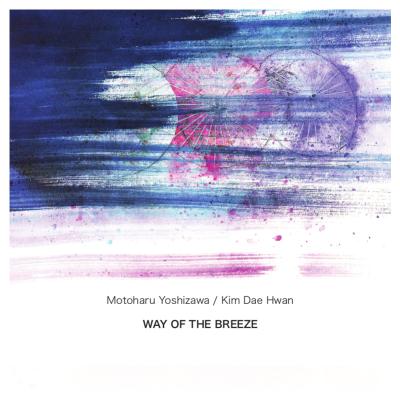Featuring: Motoharu Yoshizawa
Recorded on 8th September, 1993 at Café Amores in Hofu City, Yamaguchi, Japan
Stuart Broomer - New York City Jazz Record
Though relatively little known outside his homeland, bassist Motoharu Yoshizawa (1931- 1998), whose 27-year deathaversary is this month, is of tremendous significance to Japanese free jazz and improvised music. His significance is instantly suggested by the names of musicians with whom he performed, including stellar Japanese figures such as Ikue Mori, Keiji Haino and Toshinori Kondo, additionally extending to Steve Lacy, Dave Burrell, Derek Bailey, George Lewis and Butch Morris. His discography includes several solo bass recordings, while two duet outings immediately establish him as a significant improviser. One is Oh My, Those Boys! (NoBusiness) with the legendary Barre Phillips, a program of bass duets recorded in 1994 that includes the astonishing “Oh My!”, running to 55 minutes. The other is Two Chaps (Chap Chap), a 1996 series of saxophone-bass duets with Evan Parker. Similarly, Way of the Breeze, from 1993, a previously unreleased duo performance with Korean percussion master Kim Dae Hwan, was recorded at Café Amores in Hofu City, Japan. There are three long duets on this album (part of NoBusiness’ Chap Chap series of releases), each incrementally longer than its predecessor. The activity of the two musicians is at once intimately connected, yet each is also tangential to the activity of the other. Yoshizawa plays a five-string upright bass with electronic effects added, equally and happily executing arco as pizzicato. That fifth string effectively extends his register, and his sounds range from high-pitched whispers and whistles to a remarkably cello-like middle register, to the basso profundo roars of a beast, albeit possibly mechanical, yet in great pain. If there’s invariably a rhapsodic, even dream-like quality to Yoshizawa’s playing, even with his sudden shifts, then Kim is often insistently rooted in time, sometimes sticking to an unwavering rhythmic pattern, tapped out like Morse code on a single drum. This will characterizes the initial development of “Drifting Breeze”, but as it grows more animated, Kim opens up his phrases and his kit to rapid and varied inventions, including lower-pitched drums, while Yoshizawa’s echoing sounds seem both vocal and underwater, the two somehow combining to summon spirits, lighting up in the metallic burr of cymbals and the hollow cry of the bass’ bowed harmonics, and its eventual descent to echoing rumbles. These concentrated explorations, whether harsh, delicate or everywhere in between, develop through “Flowing On” and “Into the Infinite Greene”, a sound garden haunted by its own fecundity. By the final track, Kim is employing a radical technique in which each hand employs three drumsticks, further heightening this music’s rich complexity.
A live duet for Yoshizawa's "homemade electric vertical five strings bass" and Dae Hwan's drum kit. I think this performance is all about pressure points and their administration amid a near maniacal adherence to a minimal form. You could say there's a stoic stubbornness here, a refusal to stray from a repetitive task in order to mine it's hidden riches. Meanwhile, life goes on around that work, displaying all its variety of form and function. A busy fly on a worn ruler, or a strong wind battering an old house. Yoshizawa manufactures a dizzying array of crumbling stonework and chipped paint patterns, while the drummer tries in vain to blow that house down.
It seems that the drums here could also function as a throbbing mantra thrown against the incoming weather system of roar and squall, a stubborn refusal to cave. He is building a wall, even as the hurricane gains strength and threatens to carry the whole endeavor off and away. An odd tension is thereby assembled, suspended to near the end when you realize that, yes, there are a few cymbals in the arsenal waiting to be deployed. Just that extra bit of mortar which emphatically re-states the intention. This cannot hold. And yet, it does.
